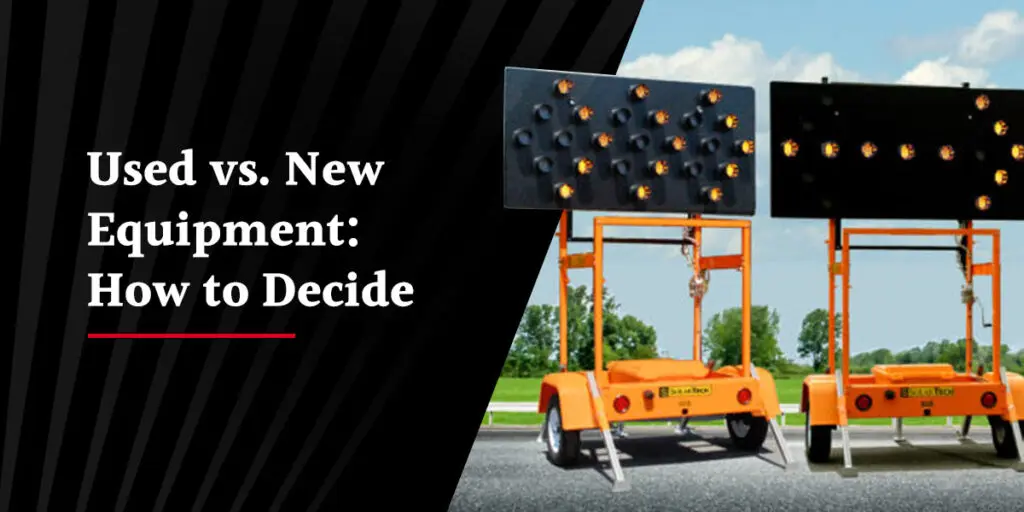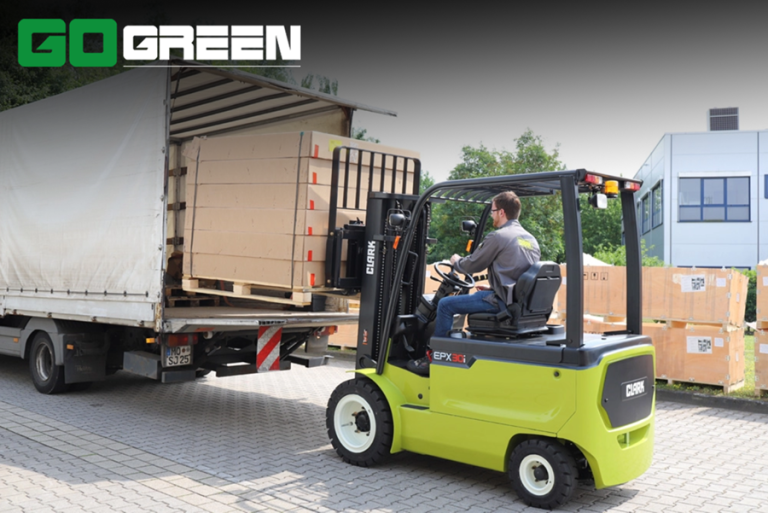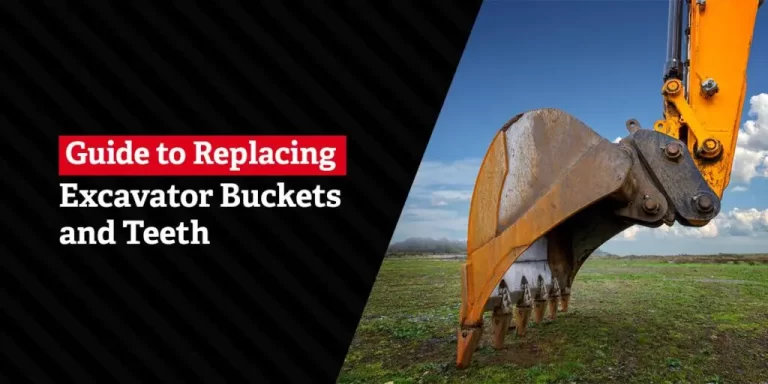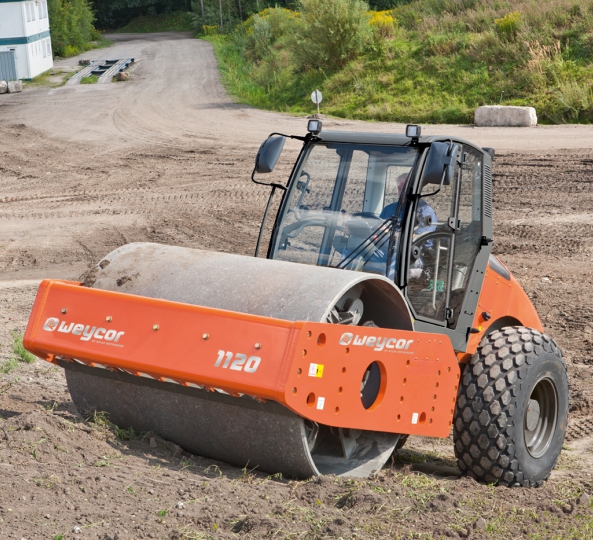Excavator & attachments| Used vs. New Equipment
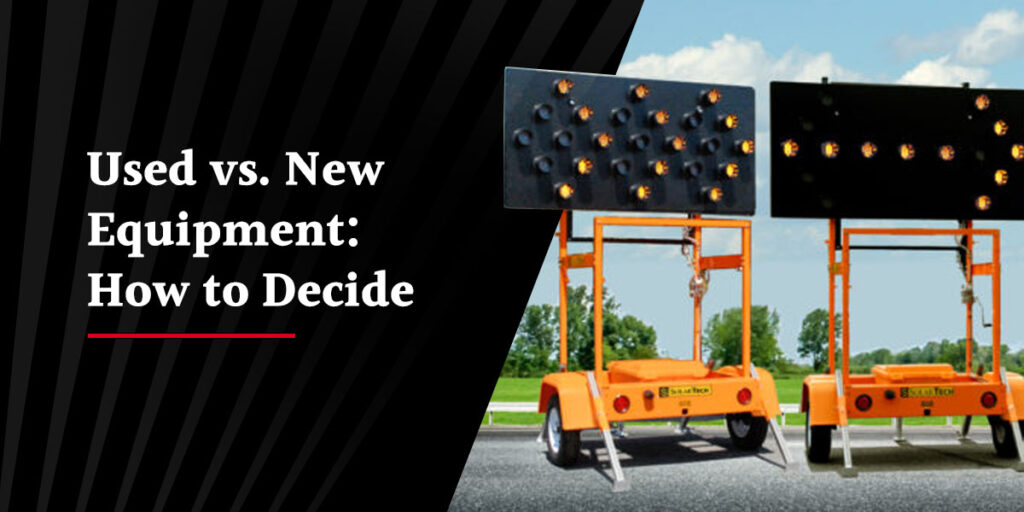
Buying new or used equipment can be a big decision for a business owner. There are many factors to consider, like equipment safety features, resale value and initial costs. The quality and condition of new and use equipment can also impact your business operations.
Whether you buy used or new equipment, you want to make an informed decision. Weighing the advantages and disadvantages of either kind of equipment can help you choose a suitable option for your business. Let’s break down the advantages and disadvantages of both options to help make the process easier.
Advantages of Buying New Equipment
The advantages of buying new equipment include the following:
1. Reliability
One of the most significant advantages of new equipment is reliability. Your company is the first to use new equipment, eliminating concerns about damages or functionality. New equipment and machines can be more dependable than used equipment. New equipment can also come with warranties, so if any machines break down or stop working, you can get repairs or replacements easily and at no cost to you.
2. Latest Technology
New equipment can come with updated technology to enhance your business operations. Technology features like remote control operations or smart systems can help staff do their jobs more efficiently. Further technology engineering improvements can also improve production speed and fuel efficiency.
3. Enhanced Safety Features
Safety is a top priority for many companies, and you want to ensure your equipment is safe for staff and all operators in accordance with regulations. Older equipment may have dated safety features that can make various daily operations risky.
New equipment can have up-to-date mechanisms that comply with the latest safety requirements and regulations. Innovative safety features can reduce the risks of accidents on-site and enhance employee safety.
4. Fewer Repairs
While brand-new equipment can be more costly upfront, you can spend less on repair costs. It’s less likely for new equipment to break down and require repairs. You can have peace of mind that your equipment will be functional for longer, and you can lean on warranties to cover the costs if you require repairs.
5. Employee Satisfaction
Using new equipment can help staff feel safer and more comfortable and help your team do their jobs more effectively. Your employees may also feel more motivated when you invest in new tools that enhance their job experience.
6. Brand Image
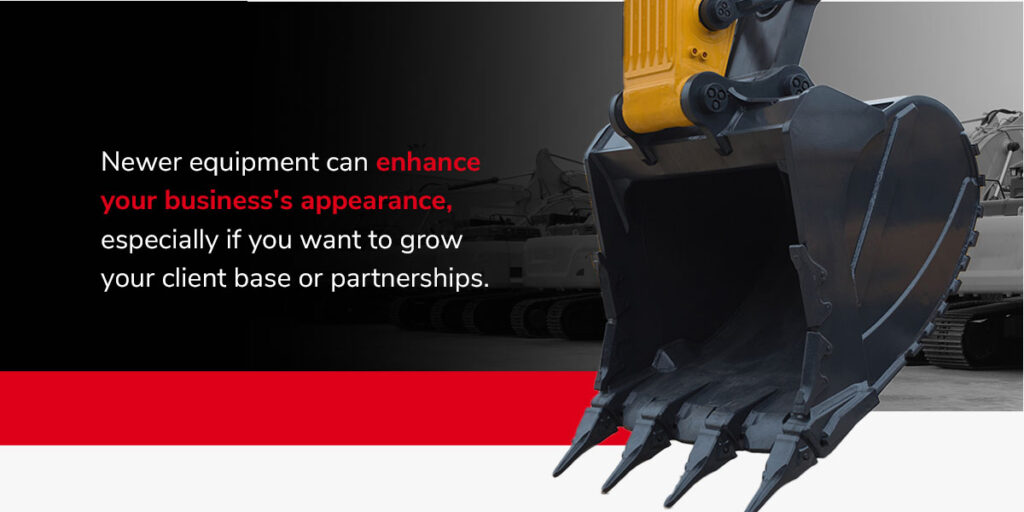
Newer equipment can enhance your business’s appearance, especially if you want to grow your client base or partnerships. Older equipment may raise concerns about your production quality, while new, state-of-the-art equipment can make your operations more trustworthy to clients and investors.
Disadvantages of Buying New Equipment
While new equipment is the obvious choice for many companies, purchasing it can come with some downsides. The disadvantages of buying new equipment include the following:
1. High Upfront Cost
New equipment can cost more than used equipment. Buying new equipment can be challenging if you’re limited to a tighter budget, especially when factoring in maintenance costs and other business expenses like hiring new personnel. You may also have to consider financing, which can cost you more in the long run.
2. Value Depreciation
Similar to new cars, brand-new equipment can depreciate faster. Depreciating equipment value can mean your business stands to make a loss on its investment. With a loss of resale value, selling your equipment can be challenging and force you to settle for selling it at substantially less than your purchase price.
3. Availability
Buying new equipment can mean longer lead times. New equipment can be in high demand, making it sparsely available. Waiting on new construction machines and tools can affect your services and ability to deliver projects on time. Weeks or months without essential equipment can result in slower production and revenue loss.
4. Training Requirements
Your staff needs to understand all aspects of new equipment before using it. Training your team on new operating and safety features can be time-consuming. Your staff has to take time out of their daily duties to learn new features, slowing down operations.
Advantages of Buying Used Equipment
There are some situations in which used equipment is the best option. Here are some of the advantages of buying used equipment:
1. Low Purchasing Cost
Used equipment can be a valuable asset at a fraction of the cost of new equipment. You can save substantial money and invest in other business areas like maintenance, salaries, training or additional equipment. Lower upfront prices can also mean you can get your business up and running faster.
2. Potentially Better Value
A used machine loses its value slowly over the years, which helps you potentially retain some resale value. With regular and proper maintenance and servicing, you can sell your equipment for the purchase price or even make a profit.
3. Availability
Affordable prices can increase the demand and availability of older equipment. You can often find the equipment you require for your business faster, eliminating long lead times. The high demand for used equipment can also mean you can sell your equipment more quickly.
4. Less Equipment Training
Employees may be more familiar with older equipment features and controls. You can save time training staff to use equipment, and they may feel more comfortable using older systems. New employees can start working immediately, improving production rates.
5. Lower Ownership Cost
Older machinery can yield lower overall ownership costs. With lower initial price points, financing costs, insurance costs, interest and maintenance costs, you can save and earn more, offering you an excellent return on investment.
Disadvantages of Buying Used Equipment
Here are some of the disadvantages of buying used equipment:
1. Lengthy Purchase Process
Buying used equipment can be an intricate process. You want to ensure that you buy your equipment from a reputable dealer, which can take time and effort as you research your options.
Comparing prices from different websites and dealers can also take time, and it can be a while before you settle on a fair price. Receiving the purchase, service and maintenance history documents for used equipment also takes time.
You also want to know that the equipment you’re buying is in excellent condition, which can require professional expertise.
2. Equipment Quality and Conditions
Some dealers can neglect regular maintenance and servicing, affecting the quality of your equipment. Issues like wear and tear, engine faults, leaks, noises, and malfunctions can impact the functionality and safety of the equipment. Poorly maintained equipment can require costly repairs and decrease your chances of making a profit on resale.

